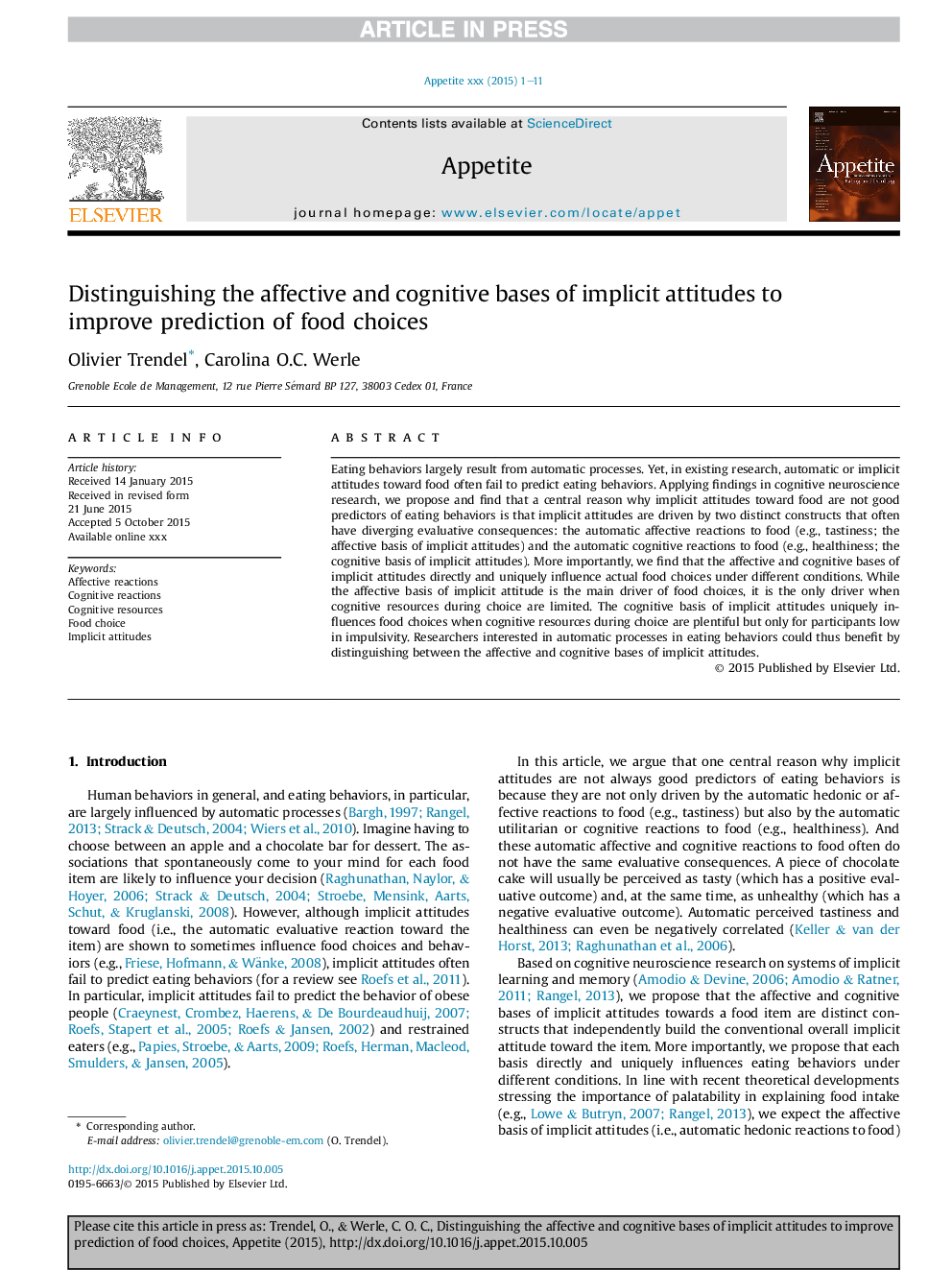| Article ID | Journal | Published Year | Pages | File Type |
|---|---|---|---|---|
| 7306939 | Appetite | 2016 | 11 Pages |
Abstract
Eating behaviors largely result from automatic processes. Yet, in existing research, automatic or implicit attitudes toward food often fail to predict eating behaviors. Applying findings in cognitive neuroscience research, we propose and find that a central reason why implicit attitudes toward food are not good predictors of eating behaviors is that implicit attitudes are driven by two distinct constructs that often have diverging evaluative consequences: the automatic affective reactions to food (e.g., tastiness; the affective basis of implicit attitudes) and the automatic cognitive reactions to food (e.g., healthiness; the cognitive basis of implicit attitudes). More importantly, we find that the affective and cognitive bases of implicit attitudes directly and uniquely influence actual food choices under different conditions. While the affective basis of implicit attitude is the main driver of food choices, it is the only driver when cognitive resources during choice are limited. The cognitive basis of implicit attitudes uniquely influences food choices when cognitive resources during choice are plentiful but only for participants low in impulsivity. Researchers interested in automatic processes in eating behaviors could thus benefit by distinguishing between the affective and cognitive bases of implicit attitudes.
Related Topics
Life Sciences
Agricultural and Biological Sciences
Food Science
Authors
Olivier Trendel, Carolina O.C. Werle,
